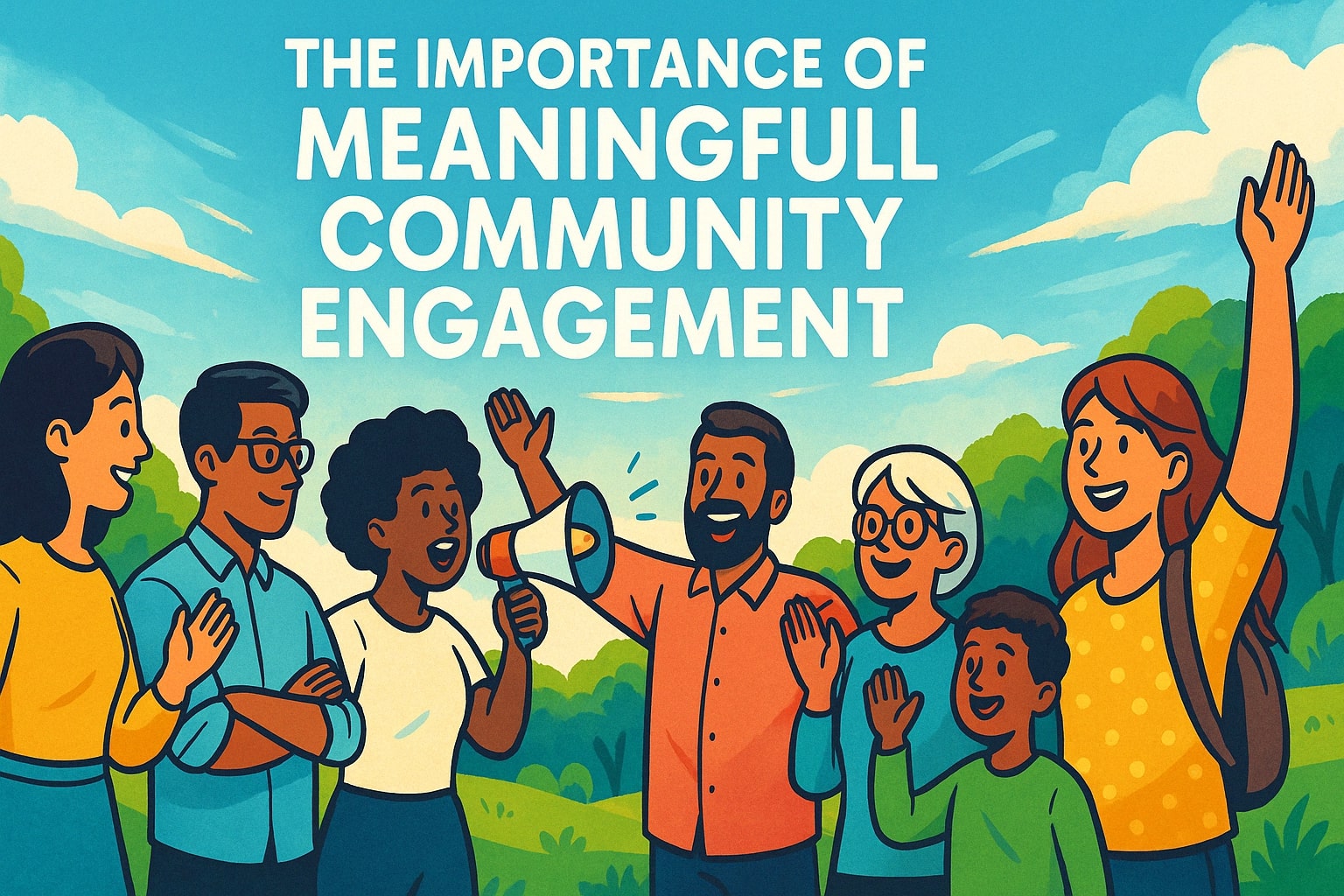Community engagement is a cornerstone of effective planning, service delivery, and policy development. In Australia and the United Kingdom, it is increasingly recognised as essential for building trust, improving outcomes, and ensuring that the needs and aspirations of diverse populations are reflected in decision-making processes. While the term is often used interchangeably with consultation or participation, true community engagement is a deeper, ongoing partnership that values the voices of all stakeholders.
Defining Community Engagement
Community engagement refers to the process by which organisations, governments, and service providers actively seek out the values, concerns, and aspirations of the community and incorporate them into the decision-making process. This approach goes beyond simply asking for feedback. It involves establishing ongoing relationships, fostering collaboration, and ensuring that community priorities continue to shape services and policies over time.
Effective community engagement is both proactive and inclusive. It recognises that communities are not just defined by geography, but also by shared interests, cultural backgrounds, and lived experiences. Engaging with communities means understanding and strengthening the relational bonds that support wellbeing and a sense of belonging.
Why Community Engagement Matters
There are several compelling reasons to prioritise community engagement in any project or service:
- Improved Outcomes: When communities are genuinely involved, the resulting services and policies are more responsive, effective, and sustainable.
- Building Trust: Transparent engagement builds confidence in organisations and government, reducing resistance and fostering a sense of ownership among stakeholders.
- Addressing Inequality: Community engagement can help bridge gaps for disadvantaged or marginalised groups by ensuring their voices are included in decisions that affect them.
- Innovation and Relevance: Communities are a source of local knowledge and creative solutions. Their input can reveal needs and opportunities that might otherwise be overlooked.
Best Practices for Effective Engagement
To achieve meaningful engagement, several best practices should be followed:
- Clarity of Purpose: Clearly define the objectives of engagement and communicate how community input will influence outcomes.
- Diverse Methods: Use a mix of digital and in-person tools, such as surveys, workshops, and participatory mapping, to reach a wide range of participants.
- Inclusivity: Tailor engagement strategies to accommodate cultural, linguistic, and accessibility needs. Partnering with community-based organisations can help reach groups that may not otherwise participate.
- Transparency: Regularly update the community on progress and demonstrate how their input has shaped decisions.
- Evaluation: Continuously monitor and assess engagement activities to ensure they are effective and adapt as needed.
Challenges and Considerations
Despite its benefits, community engagement is not without challenges. There can be a gap between rhetoric and reality, with some processes failing to move beyond tokenistic consultation. It is important to invest in building trust, provide adequate resources, and commit to genuine partnership. Additionally, digital engagement tools can increase reach but must be balanced with strategies to ensure those without digital access are not excluded. If you are interested in some ways to start implementing “micro engagements” to your council toolbelt, here is a great article on that.
Meaningful community engagement is fundamental to developing services and policies that are equitable, effective, and sustainable. By investing in genuine partnerships, using diverse and inclusive methods, and maintaining transparency, organisations can ensure that community voices shape the future. As the landscape of engagement continues to evolve, prioritising these principles will help build stronger, more resilient communities.
Looking to improve your community engagement strategies? Explore how Communiti Labs can support your organisation with innovative tools and best practice guidance to achieve impactful and inclusive engagement.
